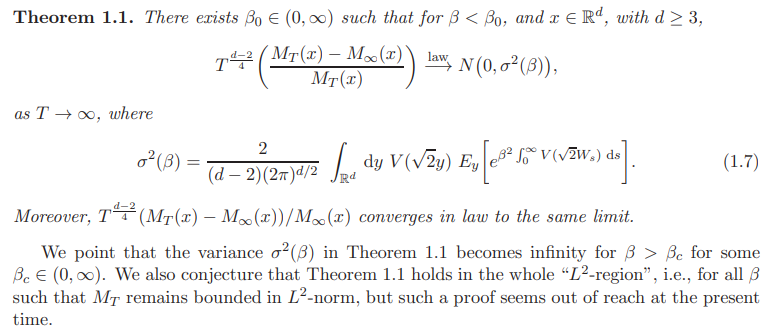SPDEs such as the stochastic heat equation for $d\geq 2$ with space-time white noise and the stochastic quantization equation have distributional solutions and we still try to make sense of their asymptotic distribution.
Q: what are the approaches of making sense of invariant measures for spdes with distributional solutions? Do the standard invariant measure results from Hilbert space carry through eg. Bismu-Elworth-Li formula? What are some results that work for dual Hilbert spaces but fail for Polish spaces?
I understand that in the case the distributional solution $u\in H^{-\alpha}$ for some Hilbert space H, then we can identify that space with H via dual pairing and use the standard invariant measure results as listed say in DaPrato and Zabczyk.
Another approach is regularizing ,say by Wick powers, and studying their behaviour.
But what if $u\in C^{-\alpha}$, where $C^{\alpha}$ is the $\alpha$-Hölder space? Do some Hilbert space results fail to carry through?
An area with many results of that flavour is of course stochastic quantization, which was designed for that purpose to begin with. However, in particular I would like to know the state of the art for long-term behaviour of parabolic spdes with distributional solutions.

